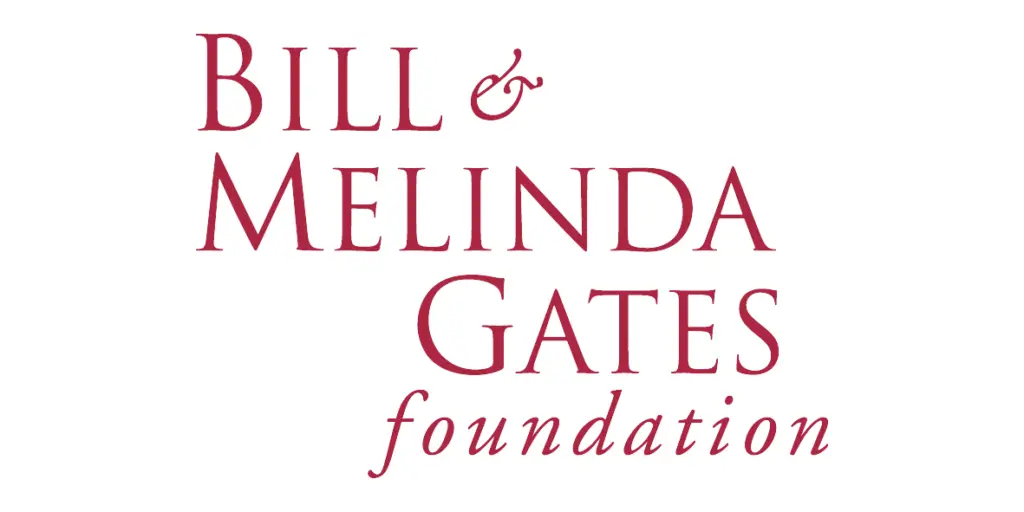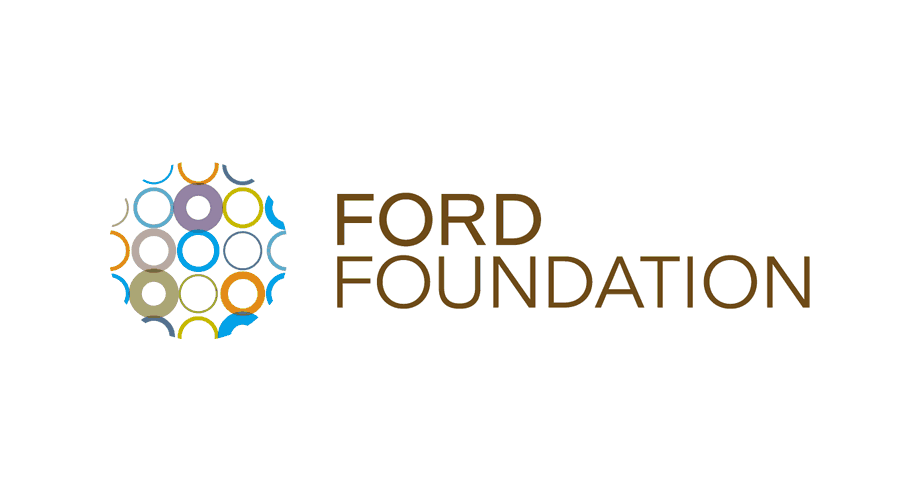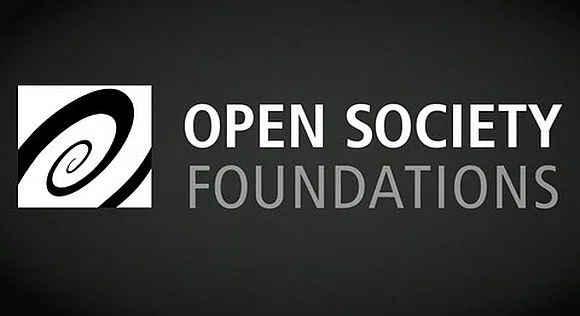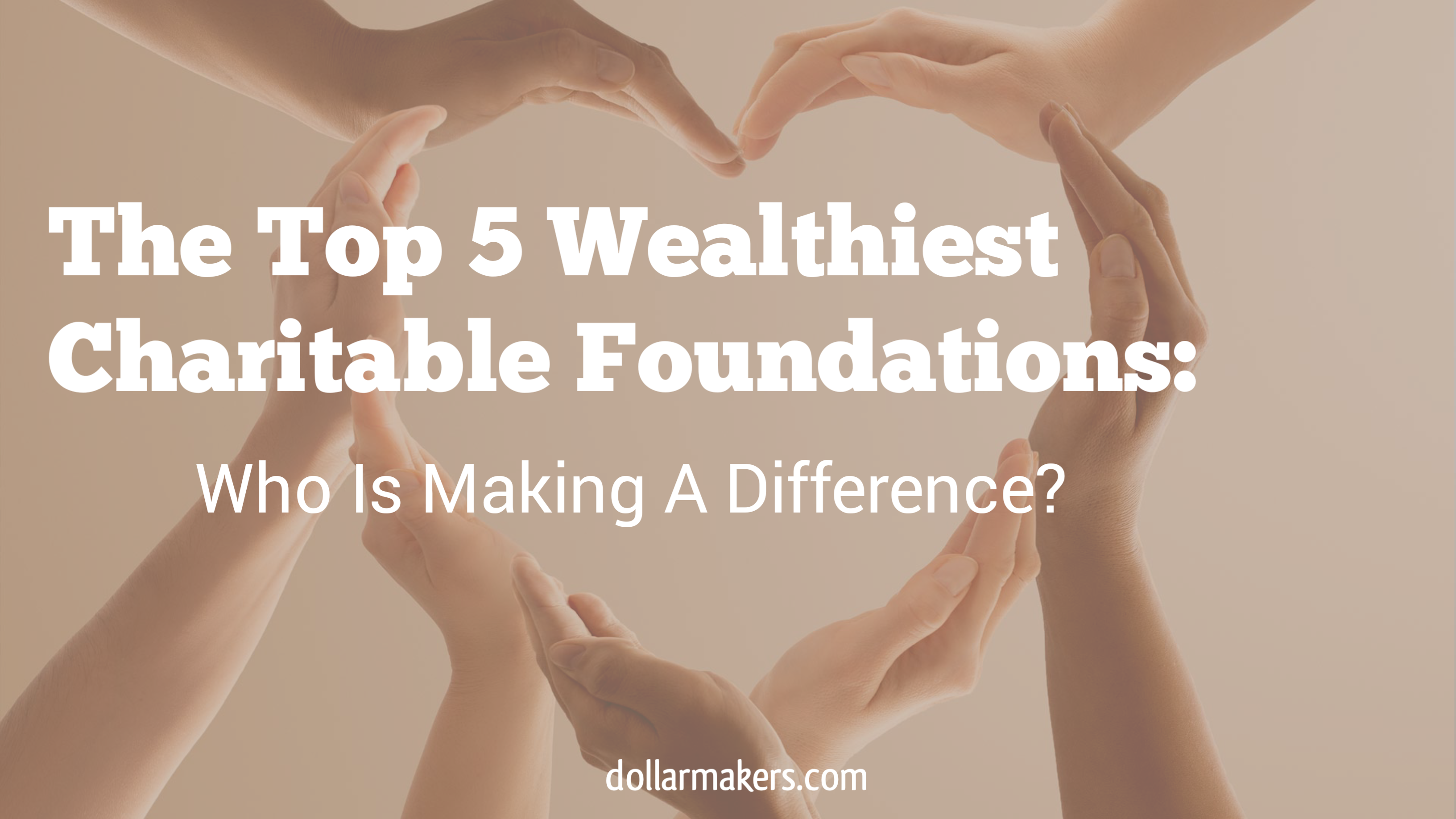Have you ever wondered who the top charitable foundations are and how much money they have? As a society, we often hear about famous millionaires and billionaires, but rarely do we hear about their charitable giving. But with more people turning to philanthropy as a way to make a positive impact in the world, it’s important to know which organizations are leading the way.
In this article, we’ll take a deep dive into the top five wealthiest charitable foundations and explore how they use their vast resources to make a difference. From funding education initiatives to fighting poverty and disease, these foundations are making an incredible impact on global issues. So if you’re curious about who is using their wealth for good or looking for inspiration for your own philanthropic endeavors, keep reading!
So, wealthiest charitable foundations?
1. Bill and Melinda Gates Foundation
2. Ford Foundation
3. Wellcome Trust
4. Robert Wood Johnson Foundation
5. Howard Hughes Medical Institute
When it comes to making a difference in the world, these five charitable foundations stand out as leaders in their efforts to improve the lives of others.
At the top of the list is the Bill and Melinda Gates Foundation, founded by Microsoft co-founder Bill Gates and his wife Melinda in 2000. With an endowment of over $50 billion, this foundation focuses on global health initiatives, education, and poverty alleviation.
The Ford Foundation, established by Henry Ford’s son Edsel in 1936, has been a pioneer in addressing issues such as economic inequality and social justice around the world. Its current endowment stands at over $13 billion.
Next up is the Wellcome Trust, a UK-based foundation with a mission to improve human health through research funding and public engagement programs. It boasts an impressive endowment of over $30 billion.
The Robert Wood Johnson Foundation was created by healthcare entrepreneur Robert Wood Johnson II in 1972 with a focus on improving access to quality healthcare for all Americans. With an endowment of nearly $12 billion, it continues to make significant contributions towards this goal.
Finally, we have the Howard Hughes Medical Institute (HHMI), founded by business magnate Howard Hughes in 1953 with a mission to advance biomedical research worldwide. With assets totaling over $20 billion, HHMI provides grants for groundbreaking scientific discoveries that have led to major medical breakthroughs.
These five foundations are just some examples of how philanthropy can truly make a difference in our world today. Their immense wealth allows them to tackle complex issues on both local and global scales and bring about positive change for those most in need.
1. Understanding the Bill and Melinda Gates Foundation’s Philanthropic Endeavors

The Bill and Melinda Gates Foundation is one of the world’s largest and most influential charitable organizations. Established in 2000, it focuses on various global issues, particularly health and education. The foundation believes that every person deserves a chance to live a healthy life, which is why they invest heavily in combating diseases like malaria and polio. They also work tirelessly toward improving educational opportunities for young people across the globe. By collaborating with governments and other non-profits, they aim to create sustainable solutions that can truly make a difference.
In addition to its focus on health and education, the foundation addresses pressing concerns such as poverty alleviation and climate change. Their approach often involves funding innovative projects that empower local communities. For example:
- Providing access to clean water.
- Fostering agricultural advancements.
- Encouraging financial inclusion through technology.
Through these initiatives, they not only support immediate needs but also lay down strong foundations for future growth. By prioritizing collaboration over competition, the Bill and Melinda Gates Foundation hopes to inspire others in their quest for equity around the globe.
2. Analyzing the Wealth and Impact of Ford Foundation

The Ford Foundation, established in 1936, stands as one of the most influential philanthropic organizations in the world. With assets totaling over $13 billion, it has played a crucial role in addressing social justice issues across various sectors. The foundation focuses on four main areas: democratic values, human rights, poverty alleviation, and education. These pillars guide its initiatives, allowing it to fund projects that tackle systemic inequality both within the United States and globally. For instance, their support for grassroots movements helps empower communities striving for change. This approach not only fosters resilience but also strengthens civil society.
Moreover, the impact of the Ford Foundation transcends financial contributions; it aims to create lasting change by partnering with diverse groups and individuals. By emphasizing collaboration, they ensure resources reach those most affected by injustice. Through grants and programs aimed at improving economic opportunities or advancing racial equity, they aim to dismantle barriers that hinder progress. As a result, beneficiaries like community organizers or educational institutions can amplify their voices and influence policies that matter deeply to them.
In this way, the Ford Foundation serves as a catalyst for transformation—encouraging collective action while nurturing innovative solutions tailored to specific challenges faced by underprivileged populations around the globe.
Read also: how to make money from writing poetry
3. Deciphering the Philanthropy Strategy of Wellcome Trust

The Wellcome Trust serves as a shining example of how philanthropy can make a significant impact on health and science. Founded by Sir Henry Wellcome in 1936, this organization is dedicated to improving health for everyone. With its vast endowment, the Trust funds pioneering research projects around the globe. They focus on areas such as infectious diseases, mental health, and genomics—fields that hold immense potential for breakthroughs that could change our lives. By investing in innovative solutions and supporting scientists at all stages of their careers, Wellcome fosters an environment where creativity thrives.
The strategy behind their philanthropy is both strategic and compassionate. They prioritize collaboration, working alongside universities, governments, and communities to tackle pressing health challenges head-on. This approach allows them to not only fund groundbreaking research but also ensure that findings translate into real-world benefits efficiently. Their commitment is reflected in various initiatives aimed at addressing global disparities in healthcare access.
For instance:
- Funding public engagement campaigns
- Supporting open data-sharing practices
- Sponsoring educational programs for future researchers
This multifaceted strategy emphasizes empowerment through knowledge while reinforcing their role as leaders in advancing human well-being worldwide.
4. Exploring the Massive Giving of Open Society Foundations

Open Society Foundations (OSF) has made a significant impact on communities around the world through its generous philanthropy. Founded by George Soros, this organization believes in promoting democracy, human rights, and social justice. With billions of dollars allocated to various causes, OSF aims to empower individuals and groups who often find themselves marginalized or underrepresented. The foundation supports initiatives ranging from education empowerment to public health improvements, helping people access resources that can transform their lives. By funding programs that address systemic issues like poverty and inequality, OSF plays an essential role in fostering meaningful change.
At the heart of Open Society Foundations’ mission is the idea that everyone deserves a voice in shaping their future. This belief drives them to support organizations dedicated to advocating for civil liberties and fair governance. Here are some key areas where OSF focuses its efforts:
- Justice reform: Working towards equitable legal systems.
- Education access: Ensuring all children have quality learning opportunities.
- LGBTQ+ rights: Fighting for equal treatment regardless of sexual orientation.
Through these initiatives and many others, Open Society Foundations not only provides financial support but also inspires hope for a better tomorrow across diverse global communities.
You may also like: Who are Broadcom’s joint venture partners?
5. Examining How The Howard Hughes Medical Institute Allocates its Wealth for Research

The Howard Hughes Medical Institute (HHMI) is a fascinating organization that plays a crucial role in advancing scientific research. With its considerable financial resources, HHMI allocates funding to various research initiatives aimed at tackling some of the most pressing health challenges of our time. One notable aspect of their approach is how they prioritize innovative ideas over traditional grant applications. By selecting researchers based on their potential for groundbreaking discoveries rather than conventional metrics, HHMI fosters an environment where creativity can thrive. This unique model not only empowers scientists but also encourages collaboration across disciplines, leading to unexpected breakthroughs.
Moreover, the diversity in funding categories showcases HHMI’s commitment to comprehensive research efforts. The institute supports individual investigators through long-term grants and also invests in educational programs that inspire future generations of scientists. For instance, programs such as the Gilliam Fellowships aim to promote diversity within scientific fields by supporting underrepresented students pursuing Ph.D.s in biomedical sciences.
Additionally, by partnering with institutions worldwide and funding strategic initiatives like the Janelia Research Campus, HHMI ensures that its wealth contributes meaningfully to global health advancements.
This holistic strategy reflects a profound understanding that nurturing talent and fostering innovation can lead us toward healthier futures for all.
Reflecting on The Influence of Wealthiest Charitable Foundations
Charitable foundations, especially those funded by some of the wealthiest individuals and families, wield significant power in shaping society. These organizations often focus on pressing issues like education, public health, and poverty alleviation. For example, the Bill & Melinda Gates Foundation has made remarkable strides in global health initiatives by providing vaccines to children in developing countries. This kind of support can transform communities where basic healthcare services are scarce. Additionally, these foundations frequently tackle systemic problems that require long-term solutions rather than quick fixes.
However, the influence they exert comes with complex implications. Wealthy donors can sometimes steer projects toward their own interests or beliefs instead of what local communities truly need. This raises questions about transparency and accountability: Who decides which issues receive funding? Furthermore, while philanthropic efforts can fill gaps left by government programs, relying too heavily on private money might shift responsibility away from public institutions. To navigate this landscape effectively requires a balance between generous giving and genuine community involvement. In essence, charitable foundations embody both hope for change and a call to critically examine the nature of their impact on society.
Through collaboration with grassroots organizations and active listening to community voices, wealthy foundations have an opportunity to foster meaningful change that benefits everyone involved.

